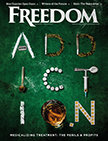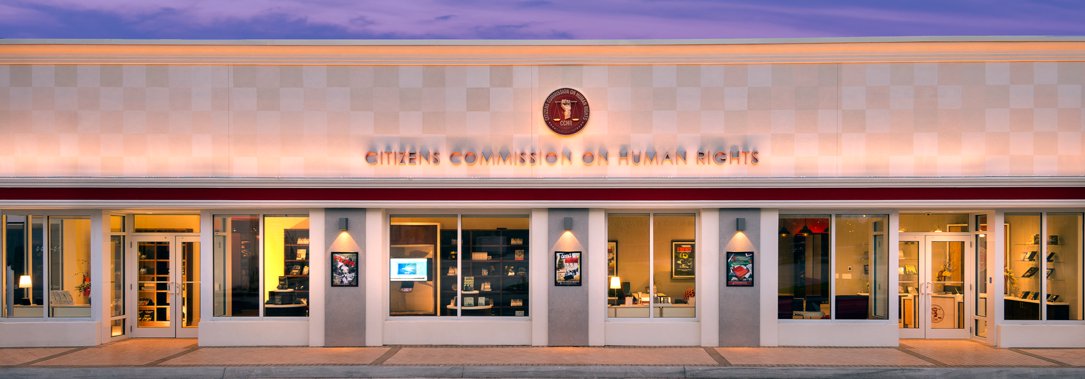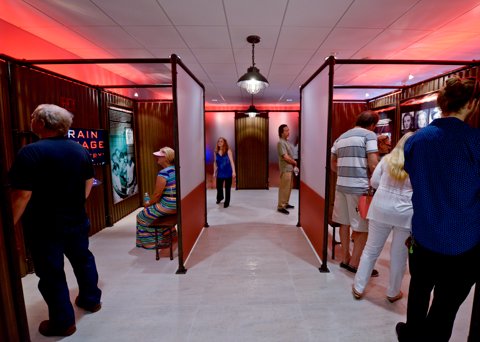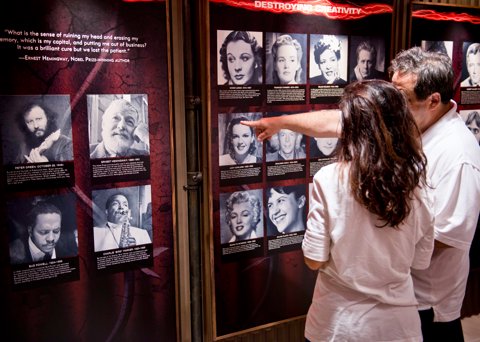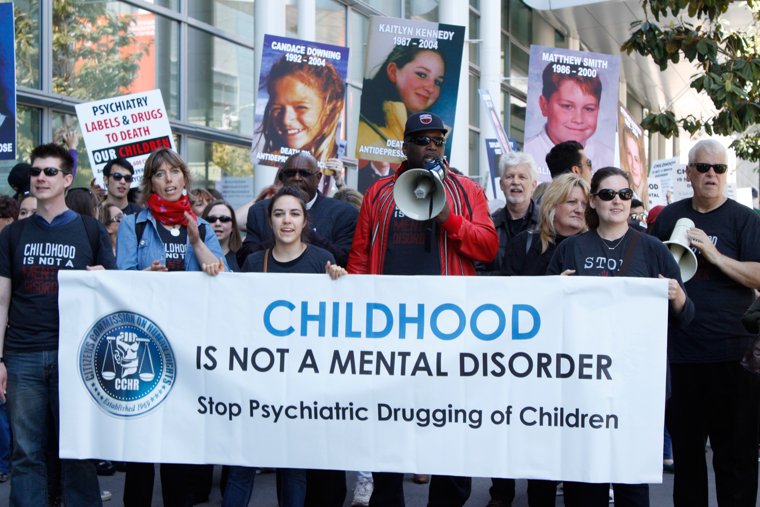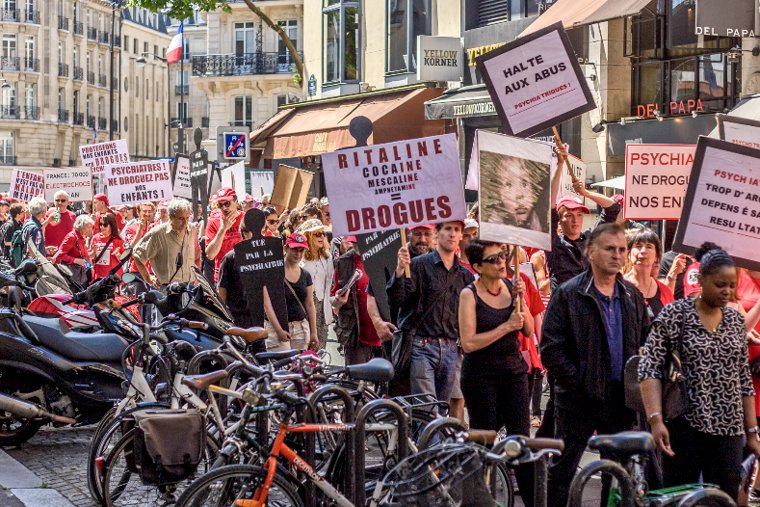Florida, the land of sparkling beaches, marvelous sunny days—and far too many predatory psychiatrists and medical scammers.
Often federal, state and local authorities are slow in cracking down on psychiatrists, pharmaceutical conglomerates and their accomplices. That’s especially true in Florida, where drug companies and psychiatry are heavy-handed in their use of politics. And the media—Florida’s newspapers and TV stations—are equally tardy. After all, greenmail in the form of all of those ads and commercials from Big Pharma is about all that keeps many media outlets alive—the clear quid pro quo is a reluctance by the press to take on corporate drug pushers and their psychiatric fellow travelers.
250 chapters in 30 countries
A snapshot of just one criminal investigation by the U.S. Justice Department that’s underway: 21 facilities targeted, five in Florida, operated by Universal Health Services, the nation’s largest behavioral healthcare system. A large percentage of the complaints—including fraud, neglect, sexual and physical abuse, and brutality—happened at the Florida UHS operations.
That probe has been grinding on for eight years. But while the wheels of government often run slow, other investigators have been hammering UHS with documentation of abuse and fraud. The group leading the attack, the Citizens Commission on Human Rights (CCHR), announced this year that it is “expanding its own investigation into psychiatric healthcare fraud involving fraudulent billing for drug and other treatment of vulnerable children and the elderly, specifically … Universal Health Services.”
CCHR was co-founded in 1969 by the Church of Scientology and a famed, pioneering psychiatrist, Thomas Szasz, who blew the whistle on the bogus “science” of psychiatry and on the inherent fraud and abuses of its practitioners. There are now 250 CCHR chapters in 30 countries.
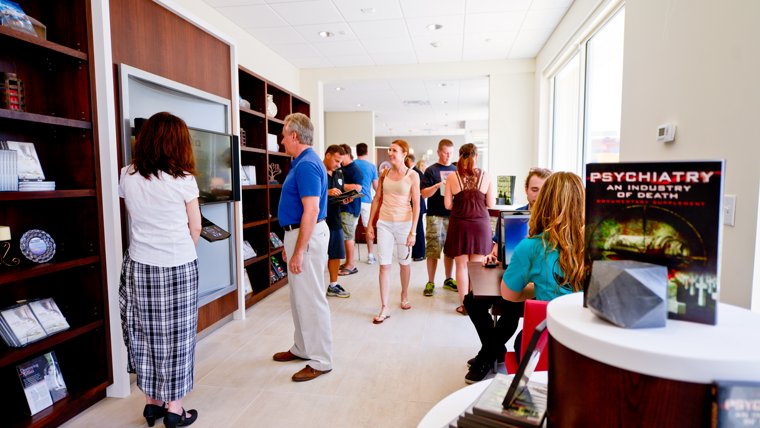
For years, CCHR has been working in Florida. And while CCHR International, headquartered in Los Angeles, has psych-busting operations across the globe, there was no prominent structural statement about its work in Clearwater, the spiritual capital of Scientology. That changed just a few weeks ago when CCHR opened its new Florida headquarters and a museum, “Psychiatry: An Industry of Death.”
181 laws passed protecting against psychiatric abuses
“For Florida, this is a tremendous resource,” said Jan Eastgate, the international president of CCHR. “Consider the amount of elderly abuse in Florida, much of it perpetrated by psychiatrists. A lot of elderly are drugged in nursing homes. There’s a lot of sexual abuse committed by psychiatrists, and the fraud in the industry is enormous. The abuse isn’t occasional, it’s systemic.”
Eastgate noted that, as with a similar “Industry of Death” museum in Los Angeles and traveling exhibits around the world, Clearwater’s new CCHR facilities will allow the public for the first time to see the true story of psychiatry. “It’s not just our perspective,” she said. “The facts on display provide important information you don’t get much of in the press and psychiatrists’ spin about themselves.”
The underpinning principle of “Industry of Death” comes from the CCHR co-founder, Szasz, who wrote: “Institutional psychiatry’s most important social characteristic is the use of force and fraud.” The exhibits show the horrors of psychiatric “hospitals,” and disclose little-known facts such as one whose legend states that “between 1950 and 1990, more Americans died in U.S. government-funded psychiatric facilities than were killed in the Revolutionary War, the War of 1812, the Mexican War, the Civil War, the Spanish-American War, World Wars I and II, the Korean War, the Vietnam War and the Persian Gulf War combined.”
Psychiatry: Industry of Death Exhibit
- Origins
- Man, the Animal
- Holocaust
- Racism
- Gulag
- ECT
- Drugs
- Asylum/Restraints
- Artists
- Criminal Psychiatry
- Mind Control
- DSM
- Schools
- Icons of Psychiatry
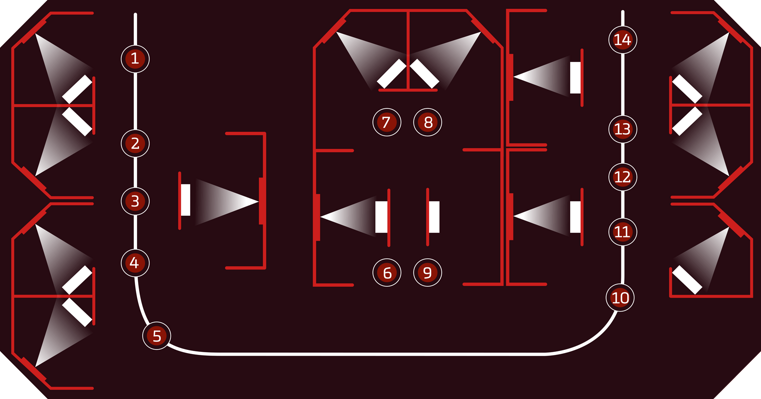
The Clearwater exhibits describe the essential philosophy of psychiatry—that man is an animal that could be manipulated like a dog. It was psychiatrists that touted eugenics, the pseudo-science that sought to eliminate “undesirables” from the gene pool—and that was the basis for the Nazis’ racial dogma that prompted the Holocaust. In moving through the history of psychiatry, viewers see the horrible abuses of the industry, notably mind-disabling drugs, scrambling the mind with electro-shock, and surgical butcheries of the brain.
“Of course, the psychiatrists hate what we do,” Eastgate said. “But many of them visit the museum in L.A., as they’ll do in Clearwater. Many of them really don’t know the story of their business.”
While education is the message at the Clearwater “Industry of Death” museum, CCHR has won its paramount recognition by investigating psychiatric abuses and shutting down offenders.
In the 1970s, it was responsible for drawing attention to Anclote Manor, a Tarpon Springs psychiatric hospital that was shuttered after prosecutors described it as a “house of horrors.” CCHR investigated and helped bring attention to the widespread drugging of Florida foster children in the state system.
700K people worldwide have toured CCHR’s traveling exhibit and 208,000 have toured the exhibit at CCHR International HQ in Los Angeles, the model for the new exhibit in Clearwater
And among the CCHR findings about Universal Health facilities in Florida: A child, Bryan Montgomery, died at the National Deaf Academy, a UHS facility in Mount Dora—allegations in a lawsuit cite horrific abuse and neglect. The FBI, meanwhile, is investigating abuse charges at the Mount Dora facility.
Also with UHS, the work of uncovering scams and abuse continues. For example, a psychiatrist wrote three times the number of drug prescriptions than the average for all psychiatrists in the state. Another psychiatrist billed Medicare $339,838 more than the average for similar doctors. CCHR documented unlawful and damaging use of restraints (even on young children); teenagers and other patients were violently handled. There was heavy reliance on psychiatric drugs, including antidepressants, antipsychotics, stimulants and sedative-hypnotics—which can be billed to Medicaid, Medicare and other insurance plans. Frequently the UHS outfits billed for treating suicide ideation at unusually high levels of diagnoses—yet the facilities, according to CCHR, are “not providing the standard of care required to monitor and prevent suicide.”
Altogether, CCHR’s list of complaints—by whistleblowers, patient families and state and federal authorities—is 23 pages long.
Or consider this: In 1997, a scheme funded by pharmaceutical companies and dubbed “TeenScreen” sought to ensnare children in psychiatric “treatment.” The “screening” was purported to identify suicidal behavior—although there was no evidence the program did or could reduce suicide. Students were lured into the program with pizza and videos. Parents were sent information, but if they didn’t proactively object—that’s called “passive consent,” which boosted screening 95 percent—vast numbers of children were deemed as having some mental ailment. About 90 percent of the children who were said to have mental health issues ended up being given psychiatric drugs.
But when TeenScreen came to Florida about a decade ago, CCHR mounted a campaign that identified the dangers in the program, the methods used to remove parental control, and the inherent corruption of some state officials being paid by front groups to “partner” with the program. Citing the folly of TeenScreen’s coercive tactics, the subjective criteria of deciding which children would be herded into “treatment” (aka drugs), the dangerous medication that would be administered, and the failure of the program to reduce suicide—CCHR, concerned parents and prudent school officials won the fight.
7 award-winning documentaries filmed and released to expose psychiatric fraud, overdrugging and other crimes
One of CCHR’s top “psych busters” in Florida, an independent investigator of Clearwater, cites another case he has been dogging for eight years: Miami psychiatrist Fernando Mendez-Villamil wrote more than 96,000 Medicaid prescriptions for mind-altering drugs from July 2007 to March 2009, more than any other physician in Florida. In one year alone, the psych scribbled prescriptions for Medicaid patients for $4.7 million. He was also pumping the psychotropic drug Abilify into children—even though the drug had not been approved for kids at that time. Eventually Congressional investigators brought pressure on the doctor in 2010—but that was three years after the investigator began his scrutiny. He continues on the case—the doctor has yet to lose his license.
“CCHR is there to do something good for society,” Eastgate said. “We’re activists. We’ve had almost 200 laws passed in a number of nations. We shut down chambers of horror masquerading as psychiatric hospitals. We’ve defended children and patients in hospitals, and we’ve forced government agencies to crack down on dangerous psychiatric drugs. That’s a proud record.”

